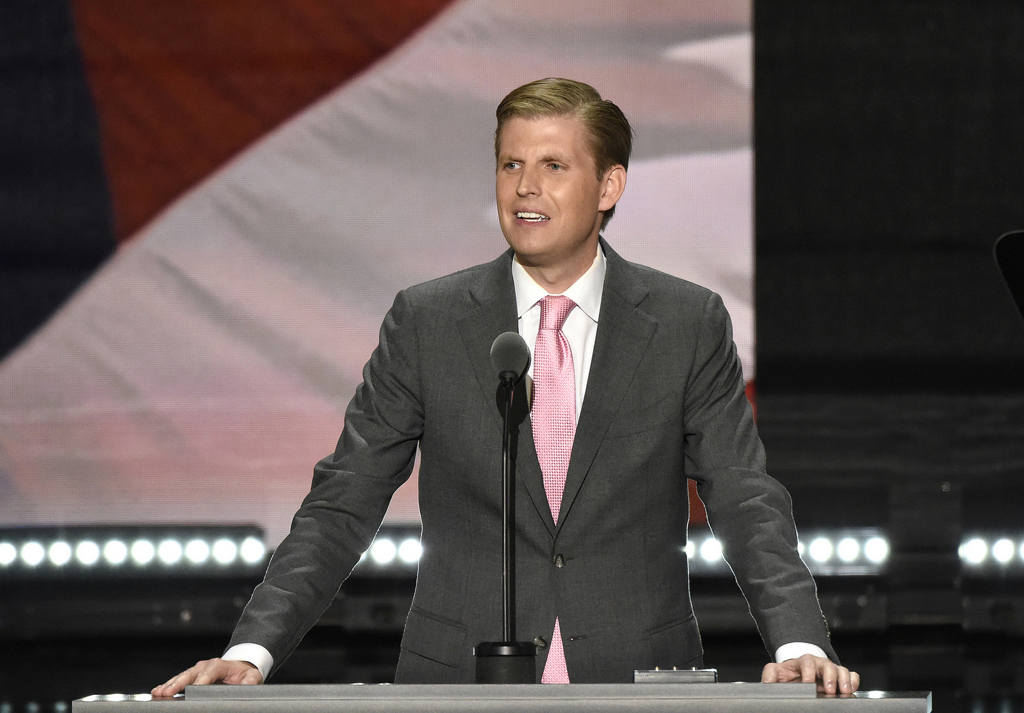When John Thompson’s house burned down four years ago, the Washington Post reported the next morning that “no injuries were reported.” That was true. But there was a lot of hurt. In the aftermath of the house fire on DC’s Colorado Avenue, the longtime Georgetown University basketball coach turned philosophical about his life and the rebuilding process he and Gwen, his wife of 32 years, would have to go through.
Thompson had met Gwen while he was a student at Archbishop Carroll High School and she was at Sacred Heart; they had married and raised three children. Like most marriages, it had had its rough patches; separation was something each had considered at different times. Now, in the wake of the fire, John Thompson decided that he could rebuild the house but not the marriage.
Only after this did Gwen learn that John had bought a million-dollar condominium in Rosslyn and, later, on the advice of his business agent, hired Washington’s best-known divorce lawyer, Marna Tucker.
Gwen was hurt by John’s move to Virginia, but she did not yet realize its significance. In Virginia a judge can determine that marital property stops accumulating at the point of separation. In the District, as in Maryland, it accumulates until the divorce is final.
As it happened, John Thompson was considering other options in life. One was a $15-million offer to become coach and general manager of an NBA team. Filing for divorce in Virginia meant there was a good chance the money from an NBA deal would be all his. If he stayed in the District or moved to Maryland, Gwen could be entitled to half of everything from any deal he made until the divorce was finalized, a process that might take years.
Even safely ensconced in Virginia, Thompson was anxious to avoid a lengthy divorce proceeding. That was another benefit of the Virginia court system. It is known for being the most efficient in the nation.
Now that the fire had prompted Thompson to cut the marital knot, he wanted it over. There was no talk of counseling or reconciliation. Gwen had moved in with her mother in DC, and the children were grown and gone. What remained was the considerable estate Thompson had built. He wrote Gwen proposing a settlement figure. The amount struck her as unfair. >
“He was trying to negotiate a deal with me and telling me, ‘This is what I can do, and you have to take this,’ ” says Gwen. The pressure was heavy, not only from John but also indirectly from her children, who were urging a quick settlement so everyone could get on with their lives. Gwen was in shock but not paralyzed. A friend recommended that she contact Deborah Luxenberg, a motherly divorce lawyer who practices out of a townhouse at 19th and N streets in downtown DC.
Deborah Luxenberg was not as well known as Marna Tucker. Tucker, a magnet for publicity, represents millionaire clients and is featured often in articles about divorce. Luxenberg used to work out of Mount Pleasant; many of her cases have involved offbeat avenues of family law like litigating the rights of lesbian grandparents. But few attorneys are as savvy as Luxenberg in the DC court system.
When Thompson discovered that his wife had retained her own combative counsel, he was surprised. He had expected her to get a lawyer, but he’d hoped for one who would be impressed by Tucker’s powerhouse persona.
Luxenberg wasted no time in alerting Gwen Thompson to the options available to her. Luxenberg told her about “celebrity goodwill,” the legal concept that her husband’s fame had value beyond that of a financial portfolio. She also knew that Thompson had reasons for wanting to keep the divorce proceeding out of the papers: He was a high-profile coach at a university that values its good name.
Luxenberg’s instincts were correct. Thompson already had been embarrassed by a public flap over his business dealings with a Las Vegas slot-machine owner. Georgetown president Leo O’Donovan had always stood by him, but the coach wasn’t eager to test the limits of the priest’s loyalty.
When Thompson and Tucker realized in September 1997 that Gwen had hired Luxenberg, they went to the courthouse in Arlington to file the divorce papers before Luxenberg could do so in DC, where the case could get buried for years. To bolster their claim for Virginia jurisdiction, Tucker had Gwen Thompson followed and served with a subpoena when she ventured across the river into Virginia.
Luxenberg considered challenging the jurisdiction but ultimately decided that a Virginia venue had some advantages for her client. She reminded Gwen that Thompson would be revered in a DC court; maybe an Arlington judge and jury would be less worshipful.
Luxenberg had been outflanked in the beginning, but now, with the parties irreconcilably at odds, she focused on assets. Thompson’s multimillion estate was not simple. In addition to his salary at Georgetown, Thompson had $3.6 million worth of stock and options in Nike Corporation, stock that fluctuated in value from day to day. The house was also a complicated matter. Georgetown University had purchased it for $350,000 in 1980 and given it to Thompson two years later. Although the house had been valued at nearly $600,000, it was sold after the fire for $325,000, and John had not offered to share any of the profits with Gwen.
Luxenberg is not known as a bomber–an attorney who will do anything and destroy anybody to win–but she was not naive. Information is power in a divorce. Luxenberg began putting together a portrait of Thompson’s personal life–a portrait, it turned out, that he might find embarrassing.
If the Thompsons were going to court in Virginia, Luxenberg was going to make sure that all of John Thompson’s life was laid out before the judge. Luxenberg zeroed in on two of Thompson’s key relationships–one with superagent David Falk, the other with Georgetown academic adviser Mary Fenlon. Luxenberg found that Thompson and Fenlon had extensive joint real-estate investments in Las Vegas.
While Luxenberg tightened the screws by subpoenaing financial records and witnesses, the Thompson children continued urging their mother to settle amicably and end what seemed a march toward family disaster in court.
Gwen Thompson was torn between the advice she got from Luxenberg and the pressure to settle from her children. Later she would come to believe that her biggest mistake was giving in to well-intended but wrong-headed advice from family members.
Like many people in the midst of divorce, she felt constantly pressured. “No matter what happens,” she says, “when you are going through something like that, there is never enough time to pause and reflect.”
By 1999, three years after the fire, 15 months after the divorce filing, and many court dates later, a settlement still had not been reached. Luxenberg’s biggest club was the threat to drag the case and all of Thompson’s dirty laundry into a public hearing. Now the pressure wasn’t getting only to Gwen–it was starting to affect Thompson’s coaching. In the middle of the 1998-99 season, he abruptly announced that he was quitting. He told the Post that the “details” of his pending divorce were “bogging him down.”
Marna Tucker did one of the things she is best at: She put the most favorable spin possible on Thompson’s resignation, saying that the painful dispute was “quite amicable.” It wasn’t, of course, but Tucker explains that everything is relative. “My definition of an amicable divorce is one where you aren’t throwing things,” she says.
In her workmanlike fashion, Deborah Luxenberg was making Thompson’s life miserable enough that he finally told Tucker he wanted to wrap it up. Gwen Thompson, too, was ready to call it a case.
In June the two sides reached an agreement for dividing up the property. The settlement, along with the potentially embarrassing information Luxenberg had amassed, was sealed. Word is that Gwen Thompson’s 21 months of pain and aggravation netted her spousal support ten times greater than what Tucker and Thompson had originally proposed, and a property distribution estimated by some divorce experts at well over $1.5 million. Neither side’s attorneys would comment on the details, but on his radio show Thompson recently joked that he had been “hosed” in the settlement.
The Thompson case involved a famous basketball coach, but in many ways it typified the Washington divorce. There was the well-off husband waking up one day and wanting a change. There was the conflict over the differences between DC and Virginia law. There was the hunt for hidden assets and incriminating witnesses. Then there was the sticky division of assets, complicated by the presence of stock options. What are they likely to be worth? Are they marital property? Options can be granted by a company as either a reward for past service or a not-yet-vested reward for what a company hopes is future loyalty. How a court interprets the intent of options can have an impact on who gets them. And finally, it involved a frequent aspect of Washington divorces, public-relations land mines that require monitoring by the lawyers involved.
At no time in the past 50 years has Washington had so many people who have gotten so rich so fast. And nothing seems to change people as quickly as sudden wealth. The wife of one America Online executive awoke one morning to learn that her husband had bought a plane, had bank accounts in the Cayman Islands, and was keeping a mistress on another Caribbean island. Such stories used to be rare, but now they are common talk among members of the Washington divorce bar. For people making so much money, the cost of getting a divorce–often $50,000 to $100,000 in legal fees–is not prohibitive.
The irony, says one divorce lawyer, is that stock options are used by technology companies to keep employees from jumping to another job; employees are not likely to leave a company until their options have vested. This provides stability in the workplace. But when the value of a worker’s stock jumps to dizzying heights, the reaction at home sometimes is to find a new spouse.
Says Virginia lawyer Jim Korman, “Money does funny things to people. It magnifies things. It affects people’s judgment, much like it did to Humphrey Bogart in The Treasure of the Sierra Madre. One of the things we’ve seen it do is make a big jerk a much bigger jerk.”
The technology revolution has undermined marriages in other ways, too. E-mail and online chat rooms have provided mechanisms for infidelity in which participants do not worry about phone calls or love notes on paper. Some divorce lawyers have taken to routinely getting subpoenas for a spouse’s hard drive.

















